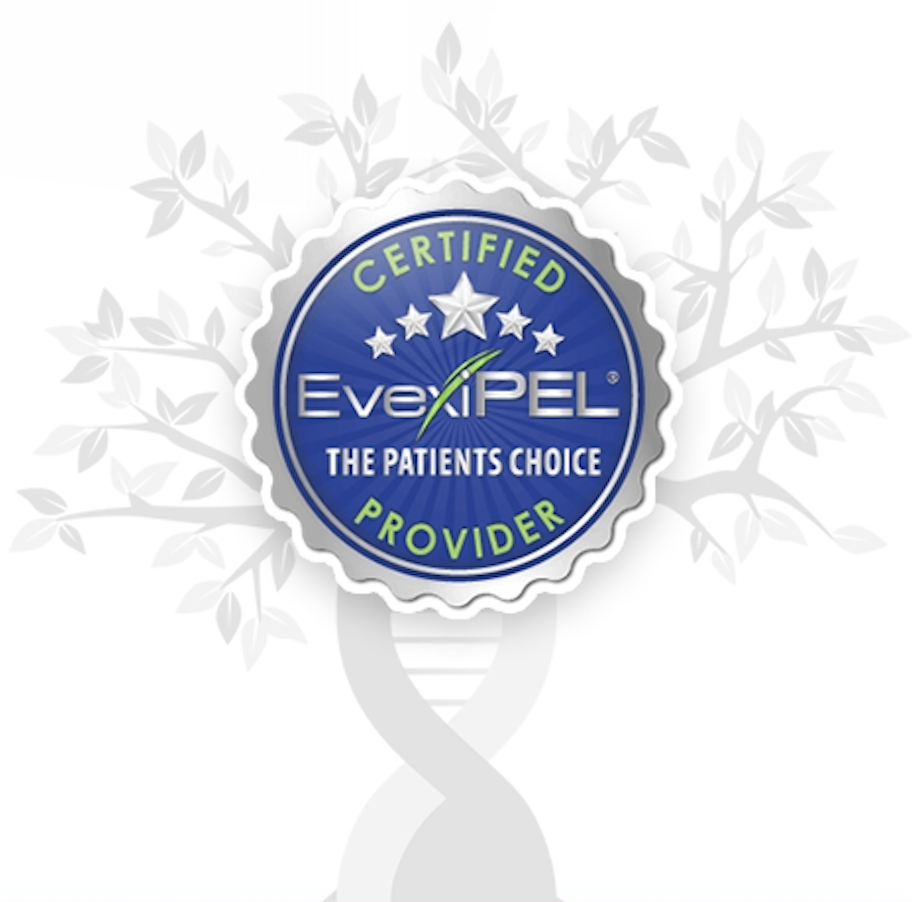

by
|
Perimenopause is the transitional phase into menopause. It’s a time of significant hormonal and physiological change in a woman’s body. Typically starting in a woman’s 40s, although sometimes earlier, perimenopause has hallmark symptoms that signal a gradual decline in ovarian functionality and fertility (Menopause Society).
As the body adapts to fluctuating hormone levels, women experience a broad range of perimenopausal symptoms that vary in intensity and duration. Sometimes, these symptoms last as long as eight years before complete menopause.
Recognizing and understanding the signs of this transformative stage in a woman’s life is essential for improving quality of life. Although perimenopausal symptoms can be challenging and uncomfortable, effective strategies and resources are available to help manage them.
Perimenopause is a natural biological process involving significant endocrine and metabolic transformations. As the body undergoes these fundamental biological changes, various menopause symptoms may arise, including:
One of the hallmarks of perimenopause is the emergence of irregular menstrual cycles. John Hopkins confirms that women may experience varying flow intensity and unpredictable intervals during this time.
Harvard Women’s Health Watch documents the development of shorter or longer cycles, skipped cycles, or unexpected heavy bleeding. Further research indicates an increased probability of anovulatory cycles, reducing the predictability of your menstrual cycle. You may even experience spotting or bleeding episodes during this time.
Hot flashes and night sweats are the most common and well-known symptoms of perimenopause, impacting between 75 and 85% of all women. The National Institutes of Health (NIH) describes these events as sudden sensations of heat, often accompanied by skin flushing, perspiration, and rapid heart rates.
Perimenopause also disrupts sleep or causes insomnia, as these symptoms can create fluctuations in sleep patterns. Lack of sleep can lead to other symptoms not directly related to perimenopause, such as headaches, grogginess, and exhaustion.
Perimenopause also impacts emotional well-being and cognitive function. Stanford University School of Medicine research shows increased emotional volatility, including mood swings, irritability, increased sensitivity to stress, and potential depressive symptoms.
The Memory and Aging Center at the University of California also documents cognitive changes, such as difficulty concentrating and mild memory lapses. Neural research indicates a correlation between hormonal fluctuations and neurological symptom manifestation.
In addition to psychological, menstrual, and vasomotor symptoms, perimenopause can lead to various physical and metabolic changes. Endocrinological research reveals evidence that perimenopause can cause weight gain around the abdomen.
The NIH documents decreased libido and potential sexual function modifications. These modifications include vaginal dryness and reduced elasticity. Furthermore, Osteoporosis Foundation research indicates an increased risk of bone density reduction during this phase.
It is important to note that the perimenopausal experience is unique to each individual. Some women may encounter only a few mild symptoms, while others may face more severe and disruptive challenges. By staying attuned to bodily changes and seeking professional guidance when needed, women can navigate this transformative journey with greater ease and confidence.
To recap, the complexity of perimenopause symptoms extends beyond the typical manifestations. Women may experience a range of hormone-related changes, including fluctuations in estrogen levels that can trigger uncomfortable menopausal symptoms like:
Birth control pills might help stabilize hormone levels and manage irregular menstrual cycles, and some women encounter brain fog and trouble concentrating. Proper evaluation and medical intervention are necessary to manage symptoms and prevent premature menopause. Healthcare providers often use blood tests to track the follicle-stimulating hormone (FSH) and assess the progression of the menopausal transition.
Addressing perimenopausal symptoms requires a thoughtful blend of lifestyle adjustments and medical guidance. By leveraging various strategies, women navigate this transition with enhanced understanding and relief.
Implementing self-care practices may improve the experience of perimenopause. Techniques that promote relaxation, such as tai chi, yoga, guided imagery, meditation, and breathing, can help maintain emotional equilibrium. These methods support mental health by reducing stress and promoting a sense of calm.
In addition to mental self-care, physical activity is equally vital for managing perimenopausal changes. Aerobic exercises like swimming or brisk walking have been shown to improve cardiovascular health and boost energy levels. Incorporating flexibility and balance exercises may help maintain physical resilience and alleviate muscle stiffness.
These self-care practices can help elevate self-image and reduce metabolic age, allowing you to look and feel younger despite the physical, mental, and emotional changes. EVEXIAS Medical Centers has medical professionals who give you personalized advice on which self-care activities are most impactful.
For more intense symptoms, medical interventions may be necessary to provide relief. Hormone replacement therapy (HRT) can help balance hormone levels and alleviate symptoms like severe hot flashes when prescribed by a healthcare professional, such as those at EVEXIAS Medical Centers. It is essential to tailor hormone therapy to individual needs, considering personal health history and potential risk factors.
Lifestyle recommendations often accompany medical treatments to enhance their effectiveness. The American Heart Association emphasizes the value of maintaining an active lifestyle through regular exercise to support metabolic health. Medical professionals routinely support the incorporation of relaxation techniques to improve emotional well-being further.
Nutritional support is also crucial for symptom management. A diet enriched with omega-3 fatty acids and antioxidants has been shown to support overall health and reduce inflammation. Maintaining regular sleep patterns, as advised by sleep health experts, can help mitigate disruptions and improve daily functioning.
When considering pharmaceutical options, consult with the healthcare providers at EVEXIAS Medical Centers to ensure a personalized approach. Regular medical check-ups and screenings are essential to monitor health changes and adjust treatment plans accordingly.
Navigating the complexities of perimenopause symptoms requires informed guidance from healthcare professionals. Engaging with experts in women’s health provides the insights needed to address symptoms and improve quality of life. Professional advice can lead to customized treatment strategies that cater to individual health profiles and specific perimenopausal experiences.
EVEXIAS Medical Centers serve as a premier resource for women navigating perimenopause, offering an array of specialized services. The center’s integrated approach unites expertise from gynecology, endocrinology, and psychology to support comprehensive care.
This multidisciplinary strategy ensures that we address each woman’s unique challenges and health considerations holistically, promoting effective management of symptoms.
Personalized consultations at EVEXIAS Medical Centers provide a foundation for tailored care. These sessions are designed to develop individualized health plans that reflect the distinct needs and goals of each patient. By focusing on education and empowerment, EMC equips women with the knowledge and resources necessary to confidently manage their health during perimenopause, ensuring they receive both medical and educational support in their journey.
